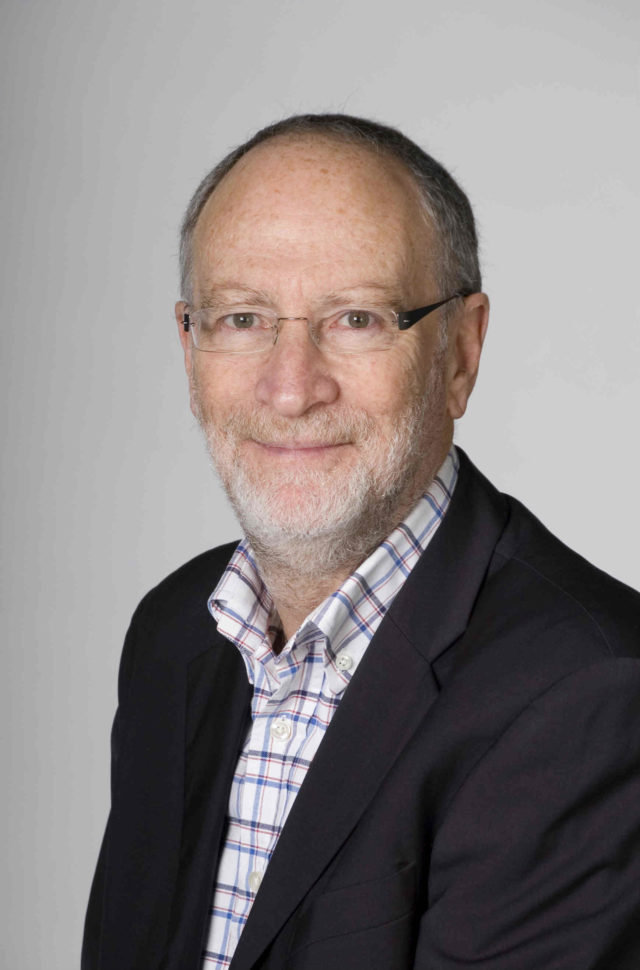It’s a sobering fact, but UK productivity persistently remains at historically low levels. According to recent figures released by the Office for National Statistics, labour productivity fell at its fastest annual pace in five years from April to June, dropping by 0.5%.
15.4 million working days were lost to work-related stress, depression or anxiety in 2017/18
– Office for National Statistics
Meanwhile, we’re in the midst of a stress epidemic. A staggering 15.4 million working days were lost to work-related stress, depression or anxiety in 2017/18, accounting for 57% of all working days lost to ill health.
Inevitably, the two are inextricably linked. The more stressed and anxious we are, the less productive we become, and so begins a vicious circle. So, is there a solution to the UK’s productivity puzzle? Sir Cary Cooper, Professor of Organisational Psychology and Health at Manchester Business School, firmly believes we need to address workplace wellbeing.
“There’s so much evidence about the bottom-line impact of not having a wellbeing culture,” says Cooper, who is a world-leading expert on workplace wellbeing and the author and editor of over 170 books on organisational psychology and HR.
“Wellbeing isn’t about sushi and mindfulness at lunch time, it’s about thinking strategically. How do we get more line managers with emotional intelligence? How do we make people feel they can work flexibly without feeling threatened? How do we get rid of the long hours culture? How do we control emails? If every business listened [to the argument for a wellbeing culture] it would raise our productivity dramatically.”
The physical workspace
For Cooper, the answers lie in addressing both the physical and psychological work environment. When considering the built environment, he cites biophilic design, well thought-out lighting and social areas as vital considerations.
“Social space is critically important in the workplace today, because so many people are linked to their screens,” he explains. “It’s important to design a space so people are not isolated, but are near one another in a rational, team-building way. If you want productivity you need good ideas and creativity, but you can’t do that if a space is designed badly. Bringing nature into the office or its surroundings is also key. In this very stressful time, water features can be soothing too – it doesn’t have to be a big pond filled with fish.”
But a critical ingredient, says Cooper, is involving staff in the decision-making around their physical work environment.
“Whatever you do, don’t impose on people,” he explains. “If you do that, they won’t accept it and you’ll have problems. They’ll think you don’t value their input and that extends to not valuing them. There’s no one-size-fits-all solution – for example if you’re an accounting firm doing detailed work on audit data, an open plan office might not be suitable. Taking into account what people say is fundamental and you need to test the water every couple of years. Ask people what can be done to make this a nicer place to come to work.”
The psychological workspace
To enhance wellbeing, we need more line managers with emotional intelligence
– Sir Cary Cooper, Professor of Organisational Psychology and Health at Manchester Business School
When it comes to the psychological environment, Cooper – who is set to give a lecture on the latest workplace wellbeing research at King’s College, London, in November – cites bad management as a major issue.
“To enhance wellbeing, we need more line managers with emotional intelligence, or EQ. We need people who manage by praise and reward, and who realise when you have unrealistic workloads or unmanageable deadlines. We promote people based on technical expertise, not their people skills and that’s wrong – there should be parity between the two. When you select someone for a managerial job it should be somebody who has the technical skills, but also the people skills. From shop floor to top floor, we need more line managers with EQ.”
Toxic technology
40% of people’s time at work is taken up with emails
– Sir Cary Cooper, Professor of Organisational Psychology and Health at Manchester Business School
In our increasingly technology-driven society, email poses an increasing threat to both our mental health and productivity. And this, says Cooper, is an issue we need to master.
“We have to control it, because it’s overwhelming – 40% of people’s time at work is taken up with emails. A lot of that is wasted time, not contributing to the service of the product. And the evidence is clear that it’s causing stress, because people feel like they are “on” 24/7 and they’re overwhelmed by their inboxes. Surveys show that 40%-50% of people access email at night, weekends and on holiday. It’s just not healthy.”
In order to mitigate the troublesome aspects of technology, while harnessing the benefits, Cooper suggests implementing a series of managerial guidelines.
“We need to get people to interact more, instead of sitting around tables and emailing. Don’t send emails to people in the same office building – talk to them instead. Avoid sending emails at night, over weekends or during holidays unless it’s absolutely necessary, and don’t cc in everybody in the world. Everyone cc’s in their boss and their boss’s boss to cover their backsides.”
In an effort to tackle burnout, some European companies have taken measures to limit out-of-hours emails. French law famously gives employees the ‘right to disconnect’, by requiring companies with more than 50 employees to establish hours when staff shouldn’t send or answer emails. Likewise, in 2012 Volkswagen agreed to stop its Blackberry servers from sending messages to certain employees when they were off-shift.
Yet Cooper believes that a blanket ban on out-of-hours emails may not be the perfect solution, because it enforces rigid working patterns.
“People want to work flexibly, so I wouldn’t block email at night,” he explains. “It’s done to give people space, but they may want to pick up the kids at three thirty, then work later. What you do want to do, is tell line managers that unless they absolutely have to, they shouldn’t send a message at 6pm or on the weekend.”
Presenteeism and productivity
Presenteeism from mental ill health costs the UK economy a staggering £15.1billion each year
– Sir Cary Cooper, Professor of Organisational Psychology and Health at Manchester Business School
Our corrosive long-hours culture is another area that Cooper believes needs urgent redress, along with the burgeoning issue of presenteeism. According to recent statistics, presenteeism from mental ill health costs the UK economy a staggering £15.1billion each year, nearly double the cost of absenteeism. An alarming study by the CIPD also revealed it had more than tripled in the UK since 2010, but that only a third of employers was acting to reduce it.
“Presenteeism is about insecurity – when you feel job insecure, you show face time,” explains Cooper. “You send emails at the weekend, you work long hours to show commitment, then you go to work when you’re ill. It’s not good, or healthy. Here, the line manager is fundamental. If you have emotionally sensitive line managers, they’ll encourage you to go home and rest when you’re sick, but if you have technically-orientated managers who are driven by the bottom line, you’ll get illness and low productivity.
“We need to get rid of the long hours culture, it’s a big problem. Bad managers are appalling at seeing when people aren’t coping, or when they’re working long hours. They reinforce that behaviour, which burns people out. It’s important to remember that long means illness, not efficiency. People who consistently work long hours damage your productivity in the end and definitely damage their health, the evidence is clear.”
For more content on ‘How to improve workplace wellbeing’, click here.
Professor Sir Cary Cooper CBE is the 50th Anniversary Professor of Organizational Psychology and Health at ALLIANCE Manchester Business School of the University of Manchester, President of the Chartered Institute of Personnel and Development (HR professional body), Immediate Past President of the British Academy of Management and President of the Institute of Welfare. He is the author/editor of over 170 books and over 350 scholarly articles on organizational psychology and HR topics. He has seven Honorary doctorates and is Honorary Fellow of the Royal College of Physicians. He received a CBE from the Queen in 2001 for his contribution to occupational health and was Knighted by the Queen in 2014 for his contribution to the social sciences.

Sophie Barton
Sophie Barton is our Features Editor. She a journalist and editor with 20 years’ experience in the national media, specialising in wellbeing and lifestyle.




